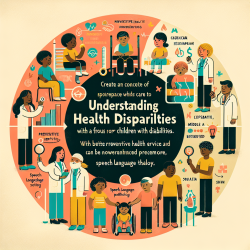Introduction
The global COVID-19 pandemic has posed unprecedented challenges, particularly for children with Autism Spectrum Disorder (ASD) and their families. The study titled An mCARE study on patterns of risk and resilience for children with ASD in Bangladesh provides insightful data on how lockdowns affected these children. This research highlights the importance of remote monitoring and intervention, offering valuable lessons for practitioners aiming to improve outcomes for children with ASD.
Understanding the Impact of Lockdowns
The study utilized the mCARE platform to collect data from 150 children with ASD in Bangladesh, capturing over 56,000 behavioral data points before, during, and after the COVID-19 lockdown. The findings reveal that lockdowns had both negative and positive impacts on various behavioral parameters, emphasizing the need for nuanced interventions.
Key Findings
- Negative Impacts: The study found that 43.33% of the behavioral parameters showed negative impacts due to lockdowns. These included increased aggression, lack of concentration, and sleep problems.
- Positive Impacts: Interestingly, 16.67% of the parameters showed positive changes, such as reduced sensitivity to light and self-injurious behavior, suggesting that some children adapted positively to the new environment.
- No Impact: For 40% of the parameters, lockdowns did not significantly alter behaviors, indicating resilience in some areas.
Practical Implications for Practitioners
For practitioners, these findings underscore the importance of personalized and data-driven approaches in therapy. Here are some actionable insights:
- Remote Monitoring: Utilize platforms like mCARE to continuously monitor behavioral changes and adjust interventions accordingly.
- Targeted Interventions: Focus on mitigating negative impacts by enhancing communication and social interaction skills through virtual sessions.
- Leveraging Positive Changes: Build on the positive adaptations observed, such as reduced self-injurious behavior, to foster resilience.
Encouraging Further Research
This study highlights the need for further research into the long-term impacts of lockdowns on children with ASD. Practitioners are encouraged to explore innovative approaches and share their findings to contribute to a broader understanding of effective interventions.
Conclusion
The mCARE study provides a comprehensive view of how COVID-19 lockdowns affected children with ASD in Bangladesh. By embracing data-driven approaches and leveraging technology, practitioners can enhance their interventions, ultimately leading to better outcomes for children with ASD. To read the original research paper, please follow this link: An mCARE study on patterns of risk and resilience for children with ASD in Bangladesh.










